Stay well, stay safe.
See you in the New Year.
"A philosopher is a man who sits in an easy chair and lectures upon how to sit in easy chairs to a man who hasn't one."-- Hal Gye.
This remark, flung casually at a self-satisfied friend who had been deploring at length the strange unrest of the masses, illustrates one phase of Hal Gye's many-sided nature. He is something of a philosopher himself, but an easy chair is certainly not his native habitat.
Rather, calling to mind his work in a dozen Australian papers, one is led to picture him as a restless spirit, skipping from point to point, cracking jokes and tickling ribs till the gravest cannot forbear to smile. Then he pauses to deliver a mock-serious epigram upon the folly of laughter, and departs with a chuckle to spread merriment elsewhere. Puck is his playmate. And, without malice, they whisper together in odd corners and devise fresh japes for the entertainment of a weary world.
Had he lived in earlier years I can imagine Hal Gye only as a brilliant court jester who died suddenly at a very early age after having caricatured the King, made an epigram about the Prime Minister, and written fantastic verse upon the manners of the court. Even the dainty watercolor, done to please the beautiful princess, would not have saved him. Kings are notoriously humorless.
Fortunately for Hal, the average Australian has a keen sense of humor, and it is mainly as a humorous artist in black-and-white that he has won an enviable reputation in this country and beyond.
South Australia Gains Great Artist.
When he goes to Adelaide to take his new position as chief artist on "The News" South Australia may congratulate itself upon having gained at the expense of the rest of the Commonwealth.
For many years his pictures have appeared regularly in "The Bulletin" and other Australian journals. His work as a book illustrator is widely known, and if his watercolors and colored-drawings have not won equal recognition it is because of a queer modesty that will not permit the humorist to display the work of his more serious moments. Even his most intimate friends have seen but few of these dainty pictures which possess a poetic feeling rare even in the work of much better known colorists. Some of his colored book illustrations (those done for "The Glugs of Gosh") are hung in the Sydney National Gallery; a few private collectors possess examples of his work, but otherwise Gye the artist in color has yet to arrive.
It is as an artist in black-and- white that he is best known, and in this class of work his caricatures and cartoons are the most popular. His gift for swift caricature is indeed remarkable. Never deliberately cruel or offensive (except maybe to the super-sensitive or the ultra-vain), they manage to catch so much of the subjects' real character -- that indefinite "some- thing" which is so elusive to the average painstaking artist -- that they become not merely distorted portraits, but true character studies achieved in a spirit of pure fun. I doubt if there is another artist in Australia to-day who can accom- plish this quite so well as Hal Gye.
His cartoons -- political, sporting, and whatnot -- have much of the same spirit. Never labored and certainly never dull, they express a light-hearted gaiety that is too often lacking in the work of many another artist who designedly sets out to be mechanically humorous.
Spontaneity is their keynote; he catches humor as it flies, and emeshes it in quaint lines before it has time to escape.
Hal Gye began work in-- of all places on earth -- a solicitor's office in Melbourne. The Law of Torts and the artistic temperament failed, however, to find much in common, and soon after Gye's employer and the head clerk and the most important client had been crudely caricatured on blotting pads relations became strained. Harold Neville Gye the law clerk was a lamentable failure, but after a year or two of study under the late Alec Sass, Hal Gye the artist began to be talked about. His quaint pictures appeared in various Australian papers, and when Will Dyson went to England Gye was naturally chosen to take his place as "The Bulletin's" theatrical caricaturist in Melbourne.
Publishing "The Sentimental Bloke."
It was about then that I first met him, and some years later, when I had completed "The Sentimental Bloke," I decided promptly that he was the one man to do the quaint illustrations I had in mind.
We foregathered and talked things over in his studio. The book had been already refused by two Melbourne publishers, and our hopes were not bright. Finally, I decided that if we could induce some kind publisher to issue a subscription edition of a few hundred copies we might reap a profit of ten or even fifty pounds.
Very carefully we planned an elaborate "make-up" of the book, even to the title-page and wrapper, and sent it to Messrs. Angus & Robertson, of Sydney, with our suggestion for a modest subscription issue. Their reply was prompt brief, and dignified.
"Dear Sir," they wrote, "We are publishers, not printers and binders."
But they immediately applied balm to our wounded dignity by suggesting a regular market edition of 5,000 copies, and a scale of fees for the artist far beyond the wildest dreams in the little back-street studio. The book was published shortly after that, and sold, to our bewilderment and, as the good Pepys has it, to our great content. Since then Hal Gye has illustrated every book I have published, besides those of many other writers, including "Banjo" Paterson and Will Ogilvie.
Except, perhaps, those he did for "The Glugs of Gosh," I like best of all Gye's quaint and dainty illustrations to "The Bloke." They have been reproduced in many places since, and their next appearance will be upon crockery from the pottery works of Messrs. Grimwade & Co., historic potters, of Stoke-on-Trent, in England.
Among other distinction, Hal Gye holds that of being the only artist who has, with the full knowledge and consent of the Prime Minister, held up the business of Australia, while he sketched.
It happened during the reign of William Morris the First. The Prime Minister had agreed, none too willingly, to pose upon the floor of the House during a sitting while Gye sketched him from the pressbox. A nod from the artist was to be the signal that the sketch was completed.
Thrice during his speech, the Prime Minister glanced hopefully toward the pressbox, only to be greeted by a ruthless headshake and a commanding frown. Thrice he obediently spoke on, tackling his subject from another angle and indulging new oratorical flights. Finally a gracious nod from the artist gave him release; he wound up with a fiery peroration, and sat down. And none among the Federal members knew at the time that they had listened for five minutes to that flowing Welsh oratory solely that an autocratic artist might be served.
I never have, though I should like to have, heard what Mr. Hughes thought of that caricature when it appeared. He, too, has a quaint sense of humor.
Gye's Quaint Philosophy.
"The average man," says Hal Gye, "goes to work to earn money to buy his wife hats and dresses to keep her quiet while he goes to work to earn more money to buy her hats and dresses."
Gye never goes to work. The result of his alleged labor too obviously bears evidence that he has had a thoroughly good time in its accomplishment. He would have you smile with him or at him, as you please, so long as you do smile. And the average man aforesaid may find in those drawings respite from that vicious circle and a bright spot in a workaday world.
On occasions, when drawing fails to carry on the fun, Gye has been known to break into verse. But rarely, and only when Puck suggests it. That airy trifle "Hot Summer Nights," published to "The Bulletin" some time ago, has by now become almost a classic. And there are others.
Adelaide is fortunate in securing the services of such a jester at her court. I feel that the queen will find no cause to frown, nor the Prime Minister any need to grow uneasy. Even the pageboys may. be permitted to titter, and the King, I hope, will never consider it expedient to order anything with boiling oil in it.
Still, if it be possible that there exists in Adelaide a citizen so seized with his own importance in the scheme of things, so obsessed with his own great work, with abnormal vanity that friendly advice cannot lessen nor gentle banter repress. I fear that he will have to submit to a measure -- a very mild measure, really -- of (what shall we say?) chastening candor. Self-revelation is made easy when assisted by a Gye. I know. He has caricatured me.
Still, he is ever gentle in his methods, and always prefaces the operation with the comforting remark, "Now, this is going to hurt me more than it hurts you."
First published in The Mail, 16 June 1923
[Thanks to the National Library of Australia's newspaper digitisation project for this piece.]
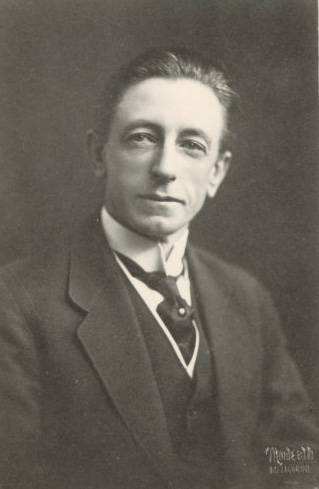
Perhaps the most remarkable success-story in Australian writing is that of the late C. J. Dennis, told by his biographer, Mr. A. H, Chisholm, in an introduction to this selection of Dennis's verse.
In 1914 "The Songs of a Sentimental Bloke" was rejected by a Melbourne publisher, so Dennis, in 1915, sent the manuscript to Angus and Robertson and said he was "pretty confident" of obtaining about three hundred subscribers for a five-shilling edition.
Angus and Robertson issued the book on their own judgment and sold 66,148 copies in eighteen months in Australia and New Zealand. Editions were also published in Britain, Canada and U.S.A., and the story was filmed and dramatised.
Ginger Mick, a cobber of The Bloke, was the subject of another small book of verse, which sold 42,349 copies in less than six months.
Here was success seldom achieved by poets. Other books such as the clever satirical "Glugs of Gosh," the children's book, "Roundabout," and sequels of "The Bloke" followed.
Now Mr. Chisholm, in his careful selection from Dennis's "nine books, a booklet and a leaflet," has given readers the chance to decide whether the large sales of 35 years ago were due to passing fancy or some universal and lasting qualities.
It seems likely that Dennis will still be very popular, for although his verse is only of slight literary value it has, especially in the vernacular verses, novelty of expression, salty humour, a pleasant rhythm, robust- ness, and the sentimentality that is often so obvious in the "tough guys" of literature, whether they be Melbourne larrikins or Hemingway's "he-men."
In addition, Dennis tells a story well.
Adult readers will find plenty of pungent satire in the fantasy of the dealings between the Glugs and Swanks of Gosh and the Ogs of Podge; while children reading "Cuppacumalonga" and "The Ant Explorer" will surely want to read other poems which Mr. Chisholm has not included in this selection, especially "The Long Road Home," "The Band," "Hist!" and "You and I."
Naturally the first poem in the book is the famous "Australaise," so popular with Diggers in World War I.
First published in The Sydney Morning Herald, 10 February 1951
[Thanks to the National Library of Australia's newspaper digitisation project for this piece.]
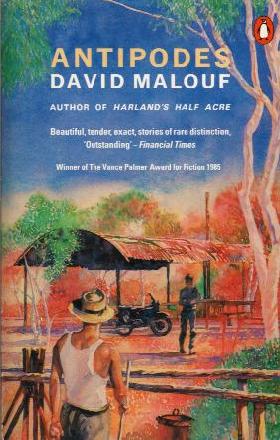
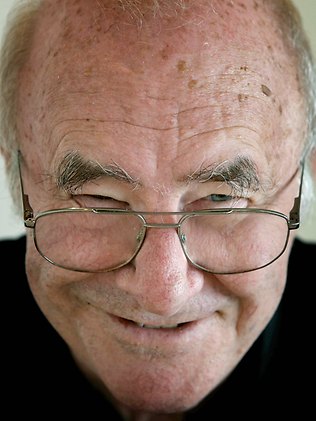 |
Clive James has been unwell. Not in the Jeffrey Barnard sense, but in the kidney failure, lung disease and leukemia sense. But he's 72, and still belting out the essays and books, the most recent of which is A Point of View, which contains transcripts of the radio talks he did for BBC's Radio 4 over the past several years. As the book hits the shelves in time for Christmas, James was interviewed for The Australian news paper by David Free: |
And even with his cancer in remission, James must pay regular visits to a clinic for blood infusions. "My immune system is being successfully replaced with an immunoglobulin drip-feed that encourages reading for at least a couple of hours a week."
All this means that James, at the moment, can't be interviewed except by email. This isn't a bad arrangement when you're interviewing one of the wittiest writers in the world. It will, however, make it hard for me to throw in the standard references to the man's physical appearance, the firmness of his handshake and what kind of beverage he leans back to sip on while considering his answers.
Improvising, I offer James the chance to provide a scene-setting description of himself. "Surprisingly hale and hearty-looking for someone described in the newspapers as being at death's door," he replies. "Clive James gives few outward signs of feebleness to anyone who did not know him when his energy was unimpaired. When he sets the kitchen on fire, as old men are inclined to do, he is a little slow at getting to the blaze. His eyes are a bit screwed up, but he hopes to get that fixed."
It hurts to think of James as an old man. If he is one, then those of us who grew up with his books and television shows must be growing old, too.
Some Early Nuggets
The novel in Australia has proceeded not in an even jog, but perhaps more suitably by a series of kangaroo hops. Taking "Geoffrey Hamlyn," Henry Kingsley's book, written with a very colonial outlook, but genuine for the period as the first of our novels, we can take with much more enthusiasm, "Robbery Under Arms," by Rolf Boldrewood, as our second. It is hard to say whether this remarkable book has received more good or harm from its title. Certainly this title has won it very many readers, who will not have felt cheated of what it made them expect for it is a rattling good story. Other possible readers, though, who would be interested and delighted by a genuine pastoral about early days in New South Wales, would never guess what pockets of quiet beauty lay in a book with such a truculent title. It is one of those rare books that can please on several different counts -- as an adventure story, as a sketched historical background, and as a sound psychological novel. Here and there the moralising becomes a little too heavy for the tale to carry but most of it is caught up naturally in the even flow of the narrative, which is in fine and enexaggerated vernacular, without dropped aitches or other irritating apostrophes to spot its pages. Every one wants to have "Robbery Under Arms" in the house, and the only hindrance to this is that it is always being borrowed by people of all ages. It is a pity that for so long it has been published only in a paper-covered edition, and with small print, and misprints into the bargain. Boldrewood wrote a good many books afterwards but he is chiefly thanked and remembered for that one. When I think of good novels in Australia I like to think that most of them are not far from the line of development that would be suggested by reading "Robbery Under Arms."
Some Successors
It was a long time before the simplicity and naturalness of that book was again reached. Boldrewood's own later books were affected by his consciousness that they were written for overseas publishers and public. Marcus Clarke's "The Term of His Natural Life," with all its glamorous power, was a "made" book. Then came Mrs. Campbell Praed, in the 'nineties, with her easy-flowing books now almost forgotten. Some of them, like "Longleat of Koralbyn," are set in Queensland, but the locale is only suggested by occasional dust and heat, and the writer shirks the whole problem of making her Queensland live in the readers' sight. The books might be set some Ruritania, a lively enough place, only non-existent.
Meanwhile, Australia was developing few novelists, but a great many short story writers, of whom it is enough to name Louis Becke, Price Warung, Henry Lawson, and Albert Dorrington. For many years it has seemed that only short stories would ever be published again (and those only in fugitive form): any novels that appear have had every sort of circumstantial opposition to ovecome.
Novels After 1900
Past this opposition pushed Miles Franklin, with her one striking book, written about the age of 20, "My Brilliant Career.'' This bit of ironic autobiography, set in an up-country township of the drearier sort, was expected to lead to more, but Miles Franklin's actual career took her away from fiction to the offices of a Women's Labour Bureau, in Chicago. Perhaps some day she will be able to repeat her early success, looking through the opposite end of life's telescope. Her novel appeared about 1900, and soon after came Randolph Bedford's two novels, "True Eyes and the Whirlwind," and ''The Snare of Strength." The first is a novel of the picaresque type, a useful kind for expressing the nomadic youth spent by many Australians before they find their life work. It includes vivid glimpses of Broken Hill in the early days, a place something like the present Mt. Isa. "The Snare of Strength" passed from Parliament House, Melbourne, to a dairy-farming district, and to mining in North Queensland. Bedford's work is never without a fine gusto. A nearly forgotten novel, yet one that had a strong, if acrid, life of its own, was Barbara Baynton's "Human Toll," full of bush tragedy. As if to show that our life is full of varied aspects, came Louis Stone's "Jonah," a Sydney story of young larrikins, done with sincerity. Out-of-print, out-of-print that is what one has to lament about all these books! Many novels deserve to die in their year of birth, but what of those that have permanent quality? We can only beg for new editions.
A Novelist Abroad
So far the books mentioned have been written in Australia. Perhaps the best known novel written while its author was abroad is "Maurice Guest," by Henry Handel Richardson. Few readers would know that the author of that brilliant story of music-student life in the Leipzig of the 'nineties was Australian, but her subsequent books leave no doubt on the matter. "Maurice Guest," published in 1909, was revised in a fourth edition in 1922. Meanwhile, a great Australian trilogy had begun to appear, "The Fortunes of Richard Mahony," the author having revisited Australia about 1912 to verify impressions. The fortunes, at first very meagre, were laid first in the early mining days on Ballarat; the Eureka episode lightens on the skyline. Melbourne develops into "marvellous Melbourne." The decade of the 'seventies is passed, in the second volume, among the hurried opulence of newly-rich Melbourne. The third volume, not yet published, will carry on the dates and little further. The writer's knowledge of the period-costumes, food, and customs is immense but the "Fortunes" is never a mere costume novel: there is character all through. All Henry Handel Richardson's novels, even those whose setting is wholly Australian, are better known in Europe than here, and are discussed at length in German and Scandinavian literary encyclopaedias and reviews, In America too, they have received deep attention. Victoria is fortunate to have found such a chronicler, more fortunate than it knows as yet. Brisbane of the early days still awaits some such interpretation. Some future novelist will, perhaps, base his story on the splendid material in "Tom Petrie's Reminiscences."
Contemporary Novels
Meanwhile, the thin but invigorating stream of novels by writers who have lived continuously in the country they describe has gone on. The books of Katherine Susannah Prichard, appearing at pretty wide intervals are the fruit of an intense devotion to her subject matter. Her gifts are mainly two: first, that of brilliant impressionism, then a rare power of writing group-scenes. One thinks of the opal miners in her second book, "Black Opal," standing about chaffing one another and discussing the universe, every man of them alive. Or, in her latest book, "Working Bullocks," there are the groups of timber-getters camped by the road for a smoke-oh, or the unforgettable, hot, timeless Sunday evenings spent by a big bush family and its visitors on a veranda beside some trees of ripe loquats. Such scenes are too difficult for most novelists, who shirk them: yet they enrich a book immensely, and the reader feels that our everyday life is full of unsuspected charm. So far, Katharine Prichard's novels have been each set in a different spot of Australia -- the tall timber of South-east Victoria, the opal fields in Western New South Wales, and the sawmilling country in the south of Western Australia. It is said that her next locale will be the northern inland of Western Australia, a place very wild, very remote, and yet, seen from within, quite a complex commonwealth. (Reading over this list of regions I can only feel how wretchedly inconvenient our Australian names are: a mere mention of latitude and longitude! Are we too big to think about? It will take many years for many of our names to become easy and vivid.)
There is little space left for some recent Queensland books. People will at least have a chance to see and hear of these during the next week's exhibition. Zora Cross' "Daughters of the Seven Mile" has lately been followed by a ''Sons of the Seven Mile," which is now available in book form. Such books put on record the changing years of a South Queensland district. The four novels of M. Forrest have that special quality which readers of her verse would expect -- a power of painting in words the rich details of Queensland's unexplored landscapes. A type of West Queensland station life that is rapidly passing away has been given in a simple and devoted picture by the author of "Cronulla," which appeared three years ago.
To me the most satisfactory definition of a good novel seems "the revelation of character through narrative," but the character need not be only human. There is also the character of a country. Every good novel perforce breaks up new ground -- the author is giving part of himself away, revealing his personal vision of "men, coming and going on the earth." As Mr. Randolph Bedford pointed out lately in a brilliant bit of satire, the average publisher likes words written to a formula, to please a public which dislikes anything new. "It loves to read some old friend it recognises, so that it can say, 'How original it must be, because I know it so well.' "
The really creative books I have mentioned have had another and a more genuine kind of originality. In making Australian life and character their theme they have had to overcome so many incidental difficulties that their impetus has had to be genuine and self-sustained all through, or it would have collapsed. Some day, when a novel about life in Indooroopilly seems as natural as one about Piccadilly, we shall thank those who turned the first sods so fruitfully.
First published in The Brisbane Courier, 15 October 1927
[Thanks to the National Library of Australia's newspaper digitisation project for this piece.]
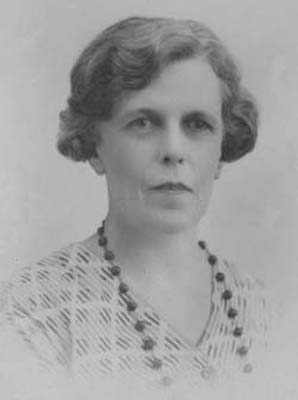
Sir, - I have elsewhere called attention to the widely exaggerated estimate of our local verse on the part of a Sydney coterie, and their fierce resentment of English criticism. In the "Daily News" of September 14 there is a long and severe review of Mr. Essex Evans's "Secret Key." Some faint praise is given, but mostly the reviewer (Mr. John Maxefield), is very rough on Australian poetry as a whole. "As generally happens in a book of Australian poems, a full third of the 'Secret Key' is mere thundering rant, with no particular meaning, no sense of poetic style, only a delight in rapid movement, as though the writer were gotten upon a pegasus, and galloped full tilt, devil take the hindmost." Again, "He is not a poet, he is not a creator, he sees with an ordinary vision, he does not think, he does not deeply feel, but he has studied the art of writing, and can make his emotions plain, even musical." In all twenty-five lines are quoted in justification of praise or blame. Out of half a dozen long notices of Australian verse recently given in London papers, this is the most severe; and, though in a measure we have provoked it by such rejoinders as Mr. Baydon's in the Christmas number of Steele Rudd's magazine. I think it is unjustifiably severe.
-Yours, etc.,
J.B.
First published in The Mercury, 28 October 1907
Note: I'm unsure whether the "it" in the last sentence above referes to the English review or Mr. Baydon's rejoinder.
[Thanks to the National Library of Australia's newspaper digitisation project for this piece.]
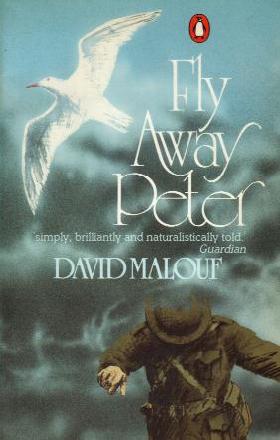
Taller When Prone: New Poems by Les Murray - Viscerally smoldering anger, the signature quality of Murray's poetry, turns conventional pieties inside out.
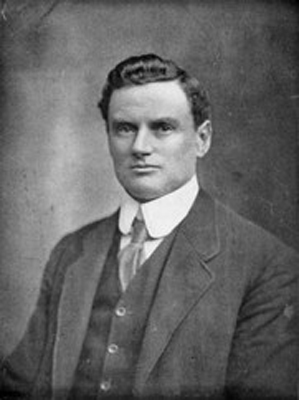
TO THE EDITOR OF THE EMPIRE.
Sir,-I hope you will kindly insert these few lines, in the hope that they may exite some interest on a subject that really gives me concern. I, with several others (I believe), felt very sorry that the attendance last night at the Temperance Hall was so sadly scanty. This seems to have been greatly caused by an unpropitious evening having been chosen for Mr. Sheridan Moore's readings; but another great hindrance was, such a high price of admission having been asked, at least, for the best seats. Even that, perhaps, would have been met, had the claims to public notice here of the very interesting youth whose talents furnished, or were to furnish, the chief subject of the evening's entertainment, been put more forcibly before that public. In that case, many, as myself, would have gladly made an effort, and then the collection would have told a very different tale. Now, Sir, if Mr. Moore would be inclined to redeliver the readings, with a little attention to the above points, also trying to obtain the Temperance Hall for the bare expenses, much encouragement might be given, not merely to a worthy family, but also to the cause of our young men, thus aiding them in the prefermce of a careful cultivation of the talents with which Heaven has endowed them, to allowing them to run to waste on folly and dissipation. An attention to these few remarks will oblige.
Sir, yours respectfully,
18th April. A LOVER OF POETRY.
P.S.-Would not it do as well if Mr. Kendall would act as reader for his own works?
First published in The Empire, 22 April 1861
And in response:
KENDALL'S POEMS.
TO THE EDITOR OF THE EMPIRE.
SIR,-Allow me, partly by way of reply to the letter of "A Lover of Poetry" in your to-day's issue, and partly for the information of the public, to state that my discourse, not a mere series of readings as "A Lover of Poetry" hints, on the actual and probable poetry of Australia, had been advertised for three weeks before its delivery; that the prices were fixed to suit the means of every person disposed to support native literature -- to wit, 4s., 2s. 6d. and 1s.; and that it was never anticipated the visit of his Excellency the Administrator of the Government, to the Victoria Theatre, would have the effect of turning the current of native support away from my discourse. I am perfectly willing to re-deliver that discourse, or rather to make a better effort, if the public care to hear me. I should, indeed, prefer to hear Kendall read a selection from his own poems if the extreme sensibility of the gifted young man would allow him to do so; but Kendall happens to think far less of his poems than I do, a circumstance which will not detract from their merits or his character.
I am, &c., &c.,
J. SHERIDAN MOORE.
First published in The Empire, 23 April 1861
[Thanks to the National Library of Australia's newspaper digitisation project for this piece.]
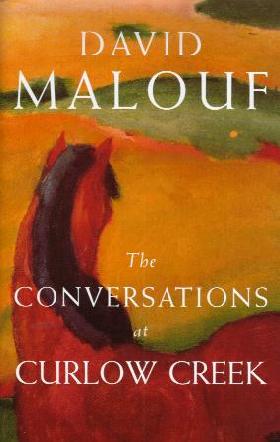
But apart from its subject there must, in the mere construction and vehicular capacity of the Sonnet, be always exhibited an absolute mastery over means. This, I say, is an indispensable requirement, admitting of no incompleteness either of thought or expression; no slip-slop, no inversion purely for rhyme's sake; not even one superfluous word. Its very metrical mode and set limits admit of no "beating about the bush." Nay, the subject of it must be handled so bravely and openly as to make directness of treatment a result inevitable. And thus a perfect sonnet will be as it were a microcosm -- whole in itself, both in form and spirit the spherical mould and integument of a spherical subject -- the one exactly enclosing the other, without either diffuseness or over compression, and so shutting it up for ever in a "measureful content."
Moreover, the untransgressible limits of the sonnet often tend to induce that closeness of expression, and that sublimation of imagery which are proper to the highest kind of enduring poetry, namely, that kind which is suggestive rather than decscriptive, or which by a few select images, intensified in the putting, suggests infinitely more than could be circumstan- tially described, or otherwise than wearisomely; and which, therefore, while it amply recompenses the imagination of the reader, exercises it as well, and thereby quickens and strengthens it for direct conception upon its own account, or as an individual and self-sustained faculty. And, having, as I think, this tendency, of course these exact limits prevent in an equal degree that verbal delusion of the sense which is the besetting weakness of most modern writers, both in a verse and prose. Not but a well- phrased amplification in the manner of setting forth a thought may be sometimes advisable. If novel, or many-sided, or somewhat obscure from its very comprehensiveness, it may even demand a double draught of expression. But to flood it with words, however well chosen or elegant in themselves, is not to clarify, but simply to drown it. Nay, though in itself as vivid and nimble as a sunbeam, it may be dulled and deadened, like an ill-mixed potation, by a few irrelevant or superfluous words -- or even by one word, if it should happen to be at all repugnant as well as needless to the sense.
Ordinary readers object to the Sonnet on account of its shortness and individuality. It is not long enough, nor many-featured enough to produce, or minister to, popular excitement. With the modern novel -- pampered many it is only a poetic "nobbler"-- an apology for a dram. It has not grip enough for their coarse mental cravings - and apropos of this - A country Englishman was partaking of some fruit with members of a family of my acquaintance, which consisted of two sorts -- some nectarines of exquisite flavour, but singularly small, and a quantity of large slipstone peaches of so bad a quality as to be almost tasteless. But after demolishing two or three of the nectarines at a mouthful, the countryman was observed to give them up with a look of some disappointment, and devote himself exclusively to the peaches. He was asked the reason why-for, said his questioner, the nectarines are excellent, but the peaches scarcely eatable. "Ess," replied the clown, "the nectons be main good loike -- but then there be no grip on 'em." Quantity rather than quality was evidently the ticket for him. And the literary taste of those readers who cannot relish the Sonnet merely because it is short and one-thoughted, is every whit as rustical, not to say vulgar, as was this fellow's gastric appetite, all their pretensions to refinement notwithstanding.
In most of the ensuing sonnets the arrangement of the rhymes is somewhat different from the run of them in that form which has been adopted from the Italian poets by many of the best writers of the Sonnet in English. But in devising this different arrangement of the rhymes, I have been actuated by no mere desire to innovate upon a usage so imposingly established. In the pure Italian form the reduplication of the rhymes is upon the whole, as it appears to me, not only too distant, but too couplet- like in their recurrence, to tell thoroughly well; and to follow out this form, in one of its varieties, so far as to rhyme the ninth and fourteenth lines (as is often done by Wordsworth) is tantamount in English to not rhyming them at all. It is perceived to be a rhyme only by the eye -- and by the eye itself only upon trying back. On the other hand, the old English or Shaksperian mode of constructing the Sonnet is obviously defective in oneness, both as to artistic appearance and musical effect, it being indeed, but a series of three separate quatrains based upon a closing couplet. Hence the rhyme-arrangement in this form is manifestly an unsuitable one. It is not sufficiently carried through, inter-currently, to impress either the ear or the eye with a feeling of wholenes and homogeneity, however single-thoughted and individual in itself (when critically after-considered) may be the subject of the poem. Now the form in which the first three, and several other of the ensuing sonnets, are written, partakes somewhat of both the forms above referred to, and after having carefully tried it by my own ear, I do verily believe that it is a better compacted one than either, and altogether fitter for the English Sonnet, or rather the Sonnet in English.
First published in The Sydney Morning Herald, 7 November 1866
You can read the 10 sonnets, which then followed this piece, here.
[Thanks to the National Library of Australia's newspaper digitisation project for this piece.]